Alfa Laval Debuts Compact PureBilge
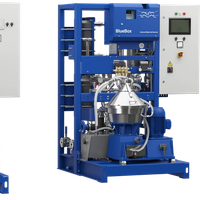
Alfa Laval announced the launch of PureBilge Compact, a compact version of the oily water separator PureBilge, designed to reduce the sytems footprint and ease install.PureBilge Compact is dseigned to be a highly compact and modular solution that provides a great opportunity for small-segment vessels to benefit from the proven oily water separation technology without space and installation constraints. Its reduced footprint and hassle-free installation also makes it an ideal retrofit solution for bigger vessels struggling with filters.PureBilge Compact is designed for 24/7 unmanned operation…
Algoma Fined for US Dumping Violations
Canadian shipping company Algoma Central Corporation was fined $500,000 in the U.S. after pleading guilty to dumping wastewater into Lake Ontario.One of the Great Lakes operator's dry bulk carriers, the Algoma Strongfield, was built in China and delivered to Canada on May 30, 2017, by a crew from Redwise Maritime Services, B.V., a vessel transport company based in the Netherlands.During the delivery voyage, while manned by a Redwise crew, the oily water separator and oil content monitor malfunctioned or failed on multiple occasions, which resulted in an accumulation of unprocessed oily bilge water. On May 5, 2017, an Algoma employee…
Alfa Laval BlueBox SA prevents oily water discharge problems
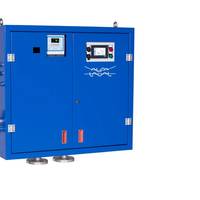
Non-compliant discharge of oily water continues to be an environmental threat – and an expensive headache for the marine industry. With the tamper-proof Alfa Laval BlueBox SA, a standalone oil content monitor and data recorder, Alfa Laval is providing peace of mind to ship owners and operators. Despite many years of strict enforcement when it comes to oily water discharge limits, there are still high-profile cases that result in extreme fines or jail terms. Naturally, no company can afford to take risks when the consequences are of such magnitude.
Princess Cruises Fined $40 Mln for Pollution
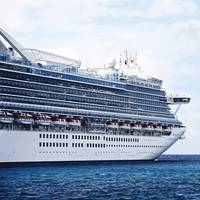
Princess Cruise Lines Ltd. was sentenced to pay a $40 million penalty – the largest-ever for crimes involving deliberate vessel pollution – related to illegal dumping overboard of oil contaminated waste and falsification of official logs in order to conceal the discharges. The sentence was announced by Acting Assistant Attorney General Jeffrey H. Wood for the Department of Justice’s Environment and Natural Resources Division, and Acting U.S. Attorney Benjamin G. Greenberg for the Southern District of Florida in Miami. The sentence was imposed by U.S. District Judge Patricia A.
Gray Water & Bilge Water: Taking Steps to Clean Up the Ocean Environment
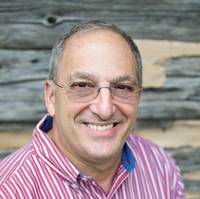
The fact that improperly-treated gray water pollution is still being dumped off ships in a so-called modern and highly-regulated shipping industry is hypocritical at best. Graywater – which comes from ship accommodation areas (shower/sink), laundry, galley and food pulper – can contain classical pollutants such as nonylphenols, metals, nutrients, surfactants, pathogens, oil, grease, detergent and soap residue. Graywater is sometimes mixed with sewage, depending on the ship design. Graywater can have varying levels of harmful contaminants.
Keep it Clean & Green
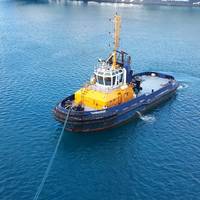
When dealing with oil and other hazardous contaminants on vessels and in marine facilities, there are some common misconceptions about the way hydrocarbons biodegrade. “The words biodegrade and bioremediate are not interchangeable,” said Jay H. Murland, CEO of EnviroLogic Biobased Technologies Inc. who manufacturer a line of over 30 EPA-approved bioremediation products. To explain further, let’s look at the difference between the processes of bioremediation, bioaugmentation and encapsulation. • Bioremediation occurs naturally all over the earth.
Bioremediation Goes Mainstream
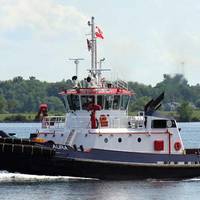
A reliable solution for response and prevention that can save money, time and regulatory aggravation is here. The threat of oil pollution has long been a problem in the shipping community. You don’t have to look too far to review the myriad of oil spills that have plagued the industry. The Exxon Valdez spill that occurred 25 years ago has recently come to the forefront once again as there is evidence that the ramifications of the spill are still being felt in the fragile eco-system of several Alaska beaches.
Shipping Firms to Pay $10.4 Million in Pollution Penalties
Two shipping firms based in Germany and Cyprus were sentenced today in federal court in Newark, N.J., to pay a $10.4 million penalty for felony obstruction of justice charges and violating the Act to Prevent Pollution from Ships related to the deliberate concealment of vessel pollution from four ships that visited ports in New Jersey, Delaware and Northern California, the U.S. Attorney’s Offices in New Jersey and Delaware, the U.S. Department of Justice Environment and Natural Resources Division and the U.S. Coast Guard announced. Columbia Shipmanagement (Deutschland) GmbH (CSM-D), a German corporation, and Columbia Shipmanagement Ltd.
Ship Operator and Engineers Guilty in Pollution Case

Singapore Ship Operator and Engineers Plead Guilty to Crimes Related to Pollution from Cargo Ship Traveling to Mobile, Alabama; Company Sentenced to Pay $1.2 Million Criminal Penalty. A ship management company headquartered in Singapore pleaded guilty and was sentenced today in federal court in Mobile for deliberately falsifying records to conceal pollution discharges from the ship directly into the sea. Target Ship Management Pte. Ltd., the operator of the M/V Gaurav Prem, pleaded…
Hyde Marine Oil/Water Separator
The Hyde Marine Separator uses a proven method for gravity separation of oil from bilge water to less than 15 ppm. The separator exceeds all performance requirements of USCG 46CFR 162.050 and IMO Resolution MEPC.60(33) and is certified by the USCG and the British Department of Transport. The standard separator is constructed of high-quality, carbon steel and coated with marine epoxy for corrosion protection. All separator piping connections are galvanized steel or high strength PVC. The basic system consists of the oil/water separator, supply pump/motor assembly and controls. Optional items include bilge level switches, clean water discharge pump, USCG certified oil content monitor, three-way diverter valve, or other customer-specified controls and alarms.







